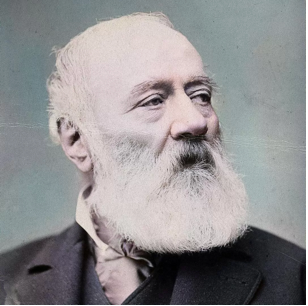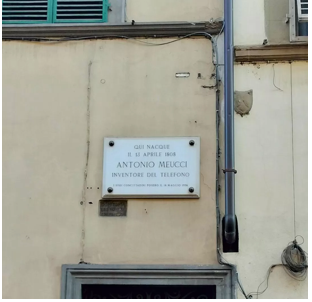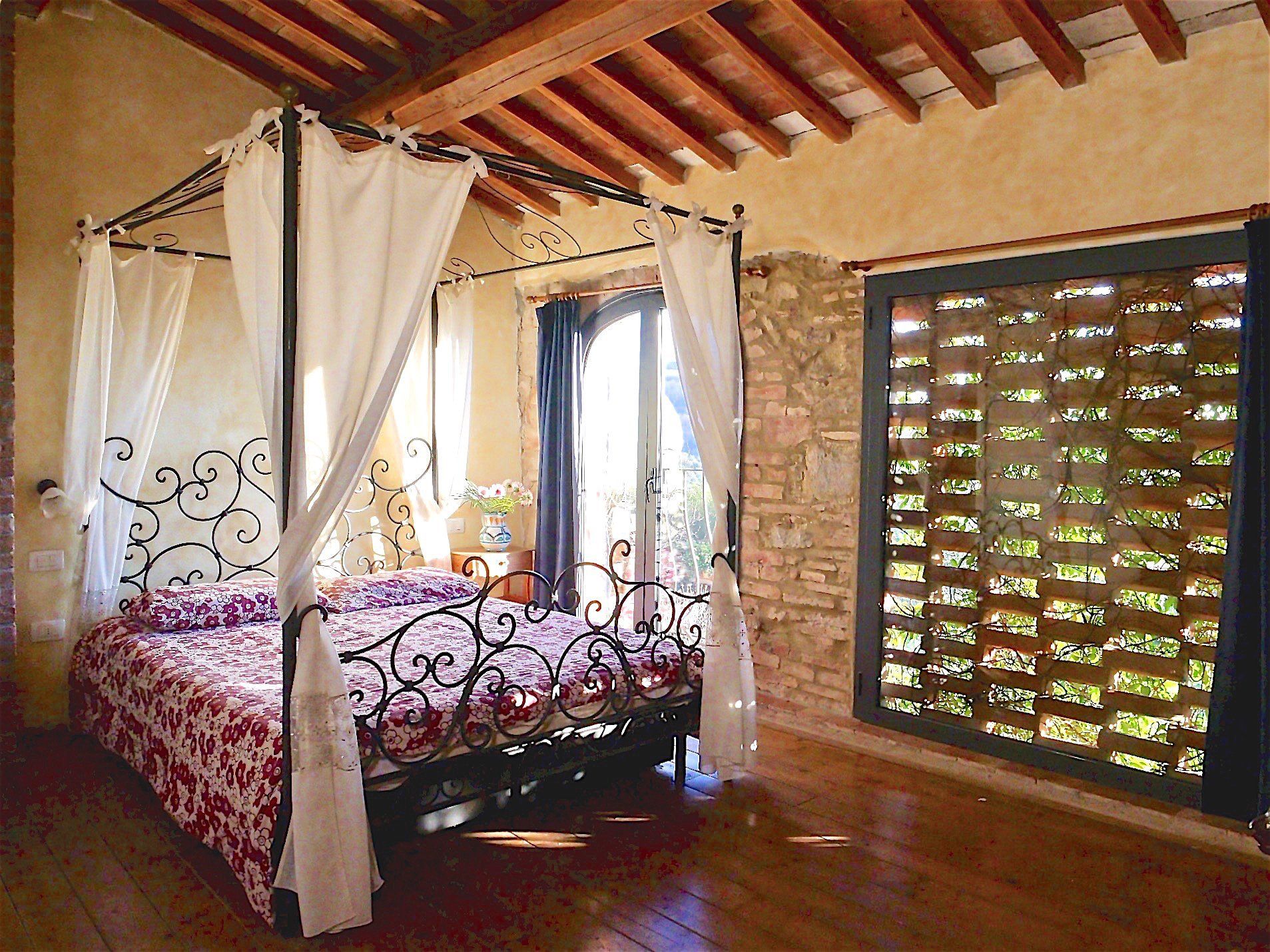Tuscan personalities

Titolo diapositiva
Scrivi qui la tua didascaliaPulsante
Titolo diapositiva
Scrivi qui la tua didascaliaPulsante
-
Antonio Meucci
Antonio Meucci
It took 113 years after his death for the Florentine engineer and prolific inventor Antonio Meucci to receive the recognition he had sought throughout his life. This finally happened in 2002, when the U.S. House of Representatives, through Resolution 269, officially declared that “the life and achievements of Antonio Meucci should be recognized, as well as his work in the invention of the telephone.”
Meucci always claimed to have invented a "talking telegraph," or telettrofono, while working as a stage designer and theater technician in Havana in 1849. In 1871, he filed a caveat (a preliminary notice of invention) with the U.S. Patent Office, but he could not afford to pay the $275 fee to maintain it after 1874, preventing him from securing a full patent.
This situation allowed Alexander Graham Bell—who worked in the same laboratory where Meucci’s materials were stored—to register his telephone patent in 1876 and, in the years that followed, to be officially credited as the telephone's inventor.
Meucci explained that after suffering severe burns due to an explosion on the Staten Island ferry in 1871, he had to spend months in hospital recovery. His financial situation became so dire that his wife was forced to sell his original telettrofono models for just six dollars to a secondhand dealer to cover medical expenses.
Meucci’s Origins and Career
Antonio Santi Meucci was born in the countryside near Florence on April 13, 1808, in what is now Viale dei Serragli No. 44, where a commemorative plaque can be seen today. The eldest of five children, he was baptized in the Basilica of San Giovanni Battista.
At the age of 14, he began studying at the Accademia di Belle Arti, where he learned chemistry, mechanical engineering, and physics, along with the fundamentals of acoustics and electroacoustics. To support himself financially, he found his first job with his father's help as a theater night watchman.
In 1827, he also started working as a pyrotechnician, preparing fireworks for the birth of a member of the Saxon grand ducal family. However, an unfair accusation by a colleague led to his arrest for leaving a door open, causing an accident.
Later, he was again arrested over a dispute involving a woman, and eventually, he was jailed for three months after being involved in insurrectionist movements in the early 1830s.
Despite these challenges, Meucci managed to build a successful career in theater, working at the famous Teatro della Pergola, where he began experimenting with acoustic devices to help people with hearing difficulties.
In 1834, he designed his first device for voice transmission using electrical signals. That same year, he met Maria Matilde Ester Mochi, whom he married in August 1834.
In 1835, the director Don Francisco Martí y Torrens arrived in Florence to recruit Italian actors and technicians for his theatrical productions at the Teatro Tacón in Havana, Cuba. Meucci accepted the offer and moved there with his wife, beginning a new chapter in his career.
In Havana, he became chief stage technician at the Teatro Tacón, working with a troupe of 80 people. During this period, his interest in sound transmission through electrical impulses grew, and he continued experimenting.
Move to the United States and the Dispute with Bell
In 1850, after the closure of Teatro Tacón, Meucci emigrated to the United States, settling with his wife in Staten Island, New York. There, he founded a paraffin candle factory, but the business ultimately failed.
In 1856, Meucci built his first electromagnetic telephone, and over the next 20 years, he developed more than 30 telephone prototypes.
By 1861, due to severe financial difficulties, he was forced to close his factory and, together with his wife, sell almost all their possessions to survive.
In December 1871, with support from Italian investors, he founded the Telettrofono Company, but his financial struggles prevented him from securing a full patent for his invention.
Meanwhile, in 1876, Alexander Graham Bell successfully patented the telephone.
Upon learning of Bell’s patent, Meucci launched a lengthy legal battle to claim authorship of his invention, arguing that Bell had used his research without permission.
In 1887, after three trials, a judge ruled that Meucci had never built a fully functional mechanical telephone, only a system based on vibrating electrical currents.
By then, Meucci had fallen into extreme poverty and died on October 18, 1889, at the age of 81.
It was only in 2002 that the U.S. Congress officially recognized Meucci’s contribution to the invention of the telephone, stating that Bell had obtained the patent due to a bureaucratic error.Ci sono voluti ben 113 anni dopo la sua scomparsa affinché l’ingegnere fiorentino e prolifico inventore Antonio Meucci ottenesse il riconoscimento che aveva cercato per tutta la vita. Questo avvenne solo nel 2002, quando la Camera dei Rappresentanti degli Stati Uniti, attraverso la Risoluzione 269, dichiarò ufficialmente che “la vita e le realizzazioni di Antonio Meucci devono essere riconosciute, così come il suo contributo all'invenzione del telefono”.
Meucci affermò sempre di essere stato l’inventore di un "telegrafo parlante", noto come telettrofono, che progettò mentre lavorava come scenografo e tecnico teatrale a L’Avana nel 1849. Nel 1871, depositò un caveat (una dichiarazione preliminare di invenzione) presso l'Ufficio Brevetti degli Stati Uniti, ma non poté procedere con la richiesta di un brevetto definitivo a causa della sua impossibilità di pagare la tassa di 275 dollari necessaria per mantenerlo valido dopo il 1874.
Questa situazione aprì la strada ad Alexander Graham Bell, il quale lavorava nello stesso laboratorio in cui erano conservati i materiali di Meucci e che, successivamente, registrò il suo brevetto per il telefono nel 1876, venendo poi riconosciuto ufficialmente come suo inventore.
Meucci spiegò che, in seguito a gravi ustioni riportate a causa di un’esplosione sul traghetto di Staten Island nel 1871, dovette trascorrere un lungo periodo di ricovero ospedaliero. La sua situazione finanziaria divenne così critica che la moglie fu costretta a vendere i modelli originali del telettrofono per soli sei dollari, affidandoli a un rigattiere per coprire le spese mediche.
Le origini e la carriera di Meucci
Antonio Santi Meucci nacque nelle campagne vicine a Firenze il 13 aprile 1808, in una casa situata nell’attuale Viale dei Serragli n. 44, dove oggi è possibile vedere una targa commemorativa. Primogenito di cinque figli, fu battezzato nella Basilica di San Giovanni Battista.
All’età di 14 anni, intraprese gli studi presso l’Accademia di Belle Arti, dove approfondì materie come chimica, ingegneria meccanica e fisica, oltre ai principi di acustica ed elettroacustica. Per sostenersi economicamente, grazie all’aiuto del padre, trovò il suo primo impiego come guardiano notturno in un teatro.
Nel 1827, iniziò anche a lavorare come pirotecnico, occupandosi dei fuochi d’artificio in occasione della nascita di un membro della famiglia granducale di Sassonia. Tuttavia, un’accusa ingiusta da parte di un collega lo portò all’arresto per aver lasciato aperta una porta, causando un incidente.
In seguito, fu nuovamente arrestato per una lite per motivi sentimentali, e più tardi venne incarcerato per tre mesi dopo essere stato coinvolto in movimenti insurrezionali nei primi anni 1830.
Nonostante queste difficoltà, Meucci riuscì a costruire una carriera solida nel settore teatrale, lavorando al celebre Teatro della Pergola, dove iniziò a sperimentare dispositivi acustici per aiutare le persone con problemi di udito.
Nel 1834, progettò il suo primo dispositivo per la trasmissione della voce attraverso segnali elettrici. Nello stesso anno conobbe Maria Matilde Ester Mochi, che sposò nell'agosto 1834.
Nel 1835, il regista Don Francisco Martí y Torrens arrivò a Firenze per reclutare attori e tecnici italiani da portare con sé al Teatro Tacón dell’Avana, Cuba. Meucci accettò l’offerta e si trasferì con la moglie, iniziando un nuovo capitolo della sua carriera.
A L’Avana, divenne capo macchinista del teatro Tacón, lavorando con una troupe di 80 persone. Durante questo periodo, il suo interesse per la trasmissione del suono tramite impulsi elettrici si intensificò e proseguì con numerosi esperimenti.
L’arrivo negli Stati Uniti e la disputa con Bell
Nel 1850, dopo la chiusura del Teatro Tacón, Meucci emigrò negli Stati Uniti, stabilendosi con sua moglie a Staten Island, New York. Qui fondò una fabbrica di candele di paraffina, ma l’impresa si rivelò un fallimento.
Nel 1856, Meucci costruì il suo primo telefono elettromagnetico, e nei due decenni successivi sviluppò oltre 30 diversi prototipi di telefoni.
Nel 1861, a causa di gravi difficoltà economiche, fu costretto a chiudere la fabbrica e, insieme alla moglie, a vendere quasi tutti i loro beni per sopravvivere.
Nel dicembre 1871, con il supporto di alcuni investitori italiani, fondò la Telettrofono Company, ma le sue precarie condizioni finanziarie gli impedirono di proteggere legalmente la sua invenzione.
Nel frattempo, nel 1876, Alexander Graham Bell riuscì a brevettare il telefono.
Quando Meucci apprese la notizia, intraprese una lunga battaglia legale per rivendicare la paternità della sua invenzione, sostenendo che Bell aveva utilizzato le sue ricerche senza autorizzazione.
Nel 1887, dopo una serie di tre processi, un giudice stabilì che Meucci non aveva mai realizzato un telefono meccanico funzionante, ma solo un sistema basato su correnti elettriche vibranti.
Nel frattempo, Meucci, ormai privo di risorse economiche, morì in povertà il 18 ottobre 1889, all’età di 81 anni.
Solo nel 2002, il Congresso degli Stati Uniti riconobbe ufficialmente il suo ruolo nello sviluppo del telefono, dichiarando che Bell ottenne il brevetto a causa di un errore burocratico.
Antonio Meucci
19/2/2025






